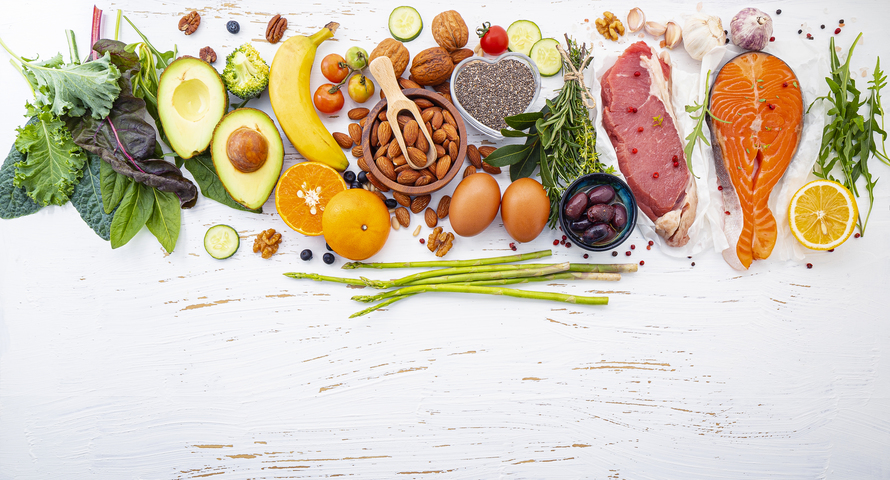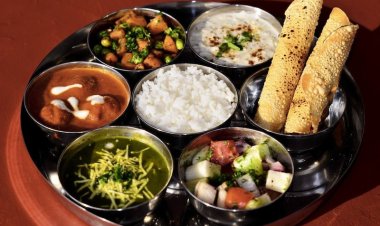Benefits of a Flexitarian Diet
The Flexitarian diet is predominantly plant-based and focuses on nutrient-dense whole foods. Here are the Benefits of a Flexitarian Diet

Benefits of a Flexitarian Diet: Are you a meat eater who also desires to consume more plant-based foods? Or perhaps you're a vegetarian who occasionally misses the flavor of a succulent burger. Fear not, because the flexitarian diet has arrived! Let's examine how this new diet will benefit us.
Torn between attempting to be vegetarian or non-vegetarian? Do you frequently desire hamburgers or chicken tikka masala, but wish to reduce your meat consumption? Let's discuss the flexitarian diet, which is promoted as the ultimate culinary compromise. With this adaptable approach to dining, you can consume both kale and steak. With the flexitarian diet, healthful dining will once again be enjoyable. So, let's investigate the ins and outs of this diet trend and learn how it can benefit your taste senses, health, and the environment!

Benefits of a Flexitarian Diet
What is a flexitarian diet?
A flexitarian diet is a flexible approach to eating what is primarily plant-based, but also includes occasional consumption of animal products. The flexitarian diet is a relatively new term that combines the words “flexible” and “vegetarian”. Flexitarians eat animal products too and so they are not considered vegetarians or vegans, but they focus more on plant-based food, so they are not entirely non-vegetarians too.
The Flexitarian diet is not a strict vegetarian or vegan diet. It allows for some animal products in moderation, such as fish, poultry, eggs, and dairy. However, the emphasis is on reducing meat consumption and increasing plant-based foods. The recommended ratio is 80 percent plant-based and 20 percent animal products.
Here are some products that you can try:
Puvi 1L Cold Pressed Gingelly/Sesame Oil (Virgin, Chekku/Ghani) - 1 Litre
The Flexitarian diet is predominantly plant-based and focuses on nutrient-dense whole foods. This indicates that the diet contains an abundance of fruits, vegetables, whole cereals, legumes, nuts, and seeds. As opposed to highly processed, packaged foods, the emphasis is on consuming actual food.
1. Eat mostly fruits, vegetables, legumes, and whole grains, nuts and seeds, herbs and condiments.
2. Have meat and animal products occasionally, preferably lean meat and fish.
3. Focus on plant-based proteins like soya, legumes, quinoa, instead of animal based.
4. Eat more natural forms of foods and reduce processed ones.
5. Limit the use of refined sugar and sweets.
Potential health Benefits of a Flexitarian Diet
1. Keeps you well-nourished and boosts immunity
A vegetarian diet provides more nutrients than a non-vegetarian diet. In addition, it prioritizes natural produce and reduces the consumption of packaged, high-sodium, high-sugar, and high-fat foods. Fruits, vegetables, and legumes are abundant in vitamins and antioxidants, which reduce inflammation and free radical damage.
2. Lowers the risk of chronic diseases
Rich in nutrients, fiber, and antioxidants, the flexitarian diet can help reduce the risk of chronic diseases such as heart disease, diabetes, and cancer. A plant-based diet has been shown to lower blood pressure, lower cholesterol levels, and enhance insulin sensitivity. Research demonstrates conclusively that vegetarians and fish consumers have lower heart disease rates than meat eaters. This is likely due to the high fiber, mineral, vitamin, and antioxidant content of plant-based diets.
3. Weight management
Low in calories but high in fiber, fruits and vegetables help you feel full and satiated. Multiple studies indicate that individuals who consume a plant-based diet may lose more weight than those who consume meat. This is in part due to the fact that flexitarians typically limit high-calorie and highly processed foods. In addition, plant-based foods are typically more substantial than animal products, which can help reduce caloric intake overall.
Also read: How to Control Hair Loss
4. Reduced environmental impact
A plant-based diet can have a smaller impact on the environment than a diet high in livestock. Producing plant-based foods requires less water and land and generates fewer greenhouse gas emissions than producing animal-based foods. Increased plant food consumption will increase the demand to produce more fruits and vegetables for human consumption as opposed to animal feed. Producing fruits and vegetables requires significantly fewer resources than rearing livestock for food.














